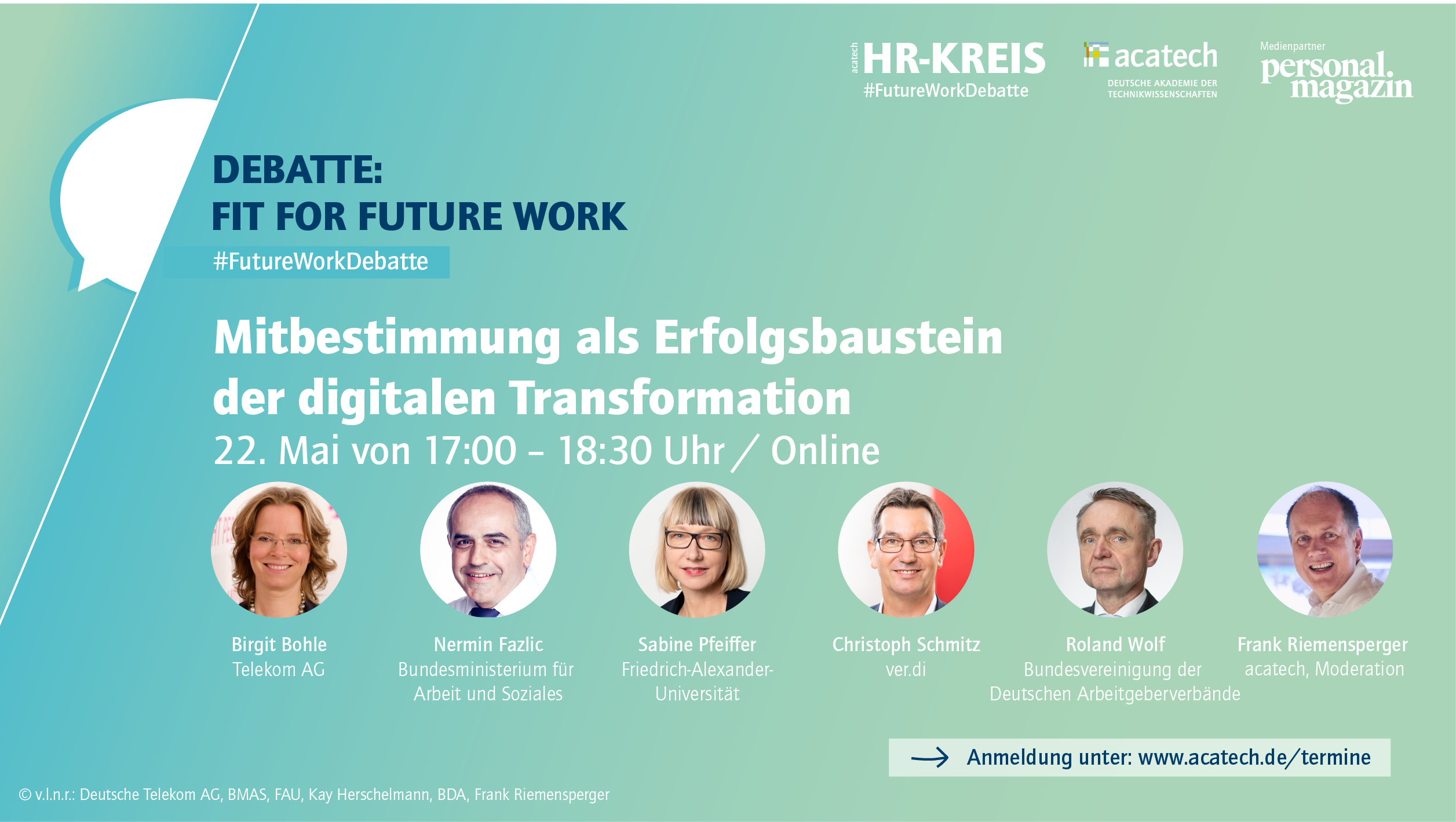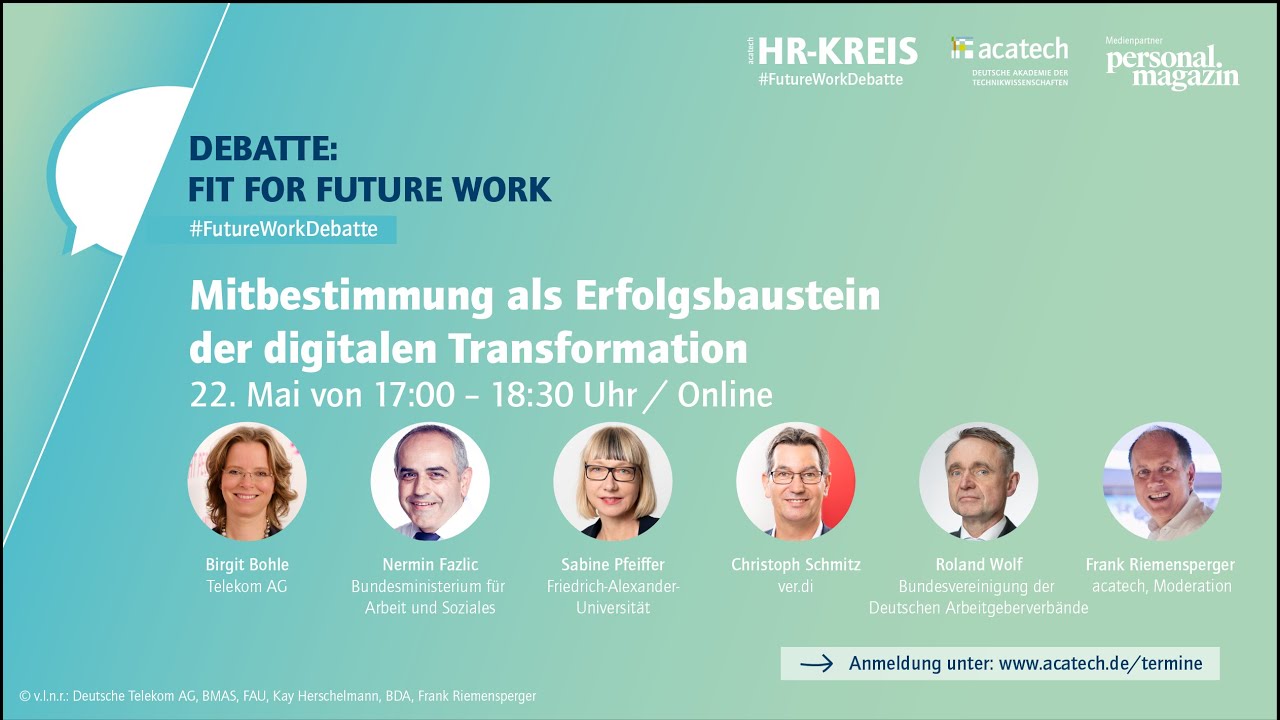#FutureWorkDebatte: the role of co-determination in the success of the digital transformation

Munich, 30 May 2023
On 22 May 2023 HR experts met for a virtual #FutureWorkDebatte to discuss the role of co-determination in the success of the digital transformation. The experts from business, science and politics agreed that co-determination is essential to the functioning of digitalisation processes in companies with the caveat that co-determination must keep up with progress and technology.
Birgit Bohle (Chief Human Resources Officer and Labor Director of Telekom AG) hosted the discussion with Nermin Fazlic (Federal Ministry of Labour and Social Affairs), Sabine Pfeiffer (Friedrich-Alexander-Universität), Christoph Schmitz (ver.di) and Roland Wolf (BDA – Confederation of German Employers’ Associations). Frank Riemensperger (acatech Executive Board) moderated the diverse panel.
The broad consensus was that good co-determination is participatory, opportunity-driven and involves people in the company. However, good co-determination also means being proactive and making a constructive contribution. For example, there is untapped co-determination potential with regard to the German Works Council Modernisation Act, consultation rights, digital co-determination and online company elections.
The panel agreed that, given the challenges of the modern world of work, involving workers and works councils at an early stage is paramount. Adaptive co-determination is also a concept that makes it possible to keep up with the rapid pace of development of new technologies.
A key issue that emerged during the debate was the mismatch between the German Works Constitution Act and the reality of digital work in companies. It was suggested that “co-determination as a competitive advantage” should be a guiding principle. The existing regulatory straitjacket often leads to “slowness” and “excessive costs”; therefore active and collective definition of the rules at company level will become more important in future. The legislation should be amended to take account of this. Furthermore, the participants agreed that the legislative framework must be protective of all businesses but at the same time remain flexible enough to facilitate good practices. The point was made that in places where it works well, greater room to manoeuvre should be allowed. At the same time, it must fulfil its protective role when problems arise in certain areas. It became clear that it is not enough just to define guiding principles; rather, the creation of experimentation spaces was suggested so as not to hinder innovation. Bad experiences must not be allowed to result in overregulation for all. Solutions should be found at company level.
Numerous examples of good practices in good corporate co-determination were discussed. The point was made that the emphasis must be placed on what is achievable and on precisely these positive examples in order to bring co-determination forward.
Finally, it was argued that successful co-determination in practice requires all those involved to take responsibility and commit to finding a solution together. Only through collective action and by taking an adaptive approach can we ensure that co-determination becomes a cornerstone of success and meets the challenges of our time.
Recording of the event (in German)
About the debate series Fit for Future Work
Current proposals from acatech’s Human Resources Working Group are zeroing in on how a good working relationship can work and how digitalisation can go from bugbear and suspected job-killer to an opportunity for good work. In its debate series “Fit for Future Work” the Human Resources Working Group puts forward its perspectives for public discussion. The latest information and positions surrounding the debate series are available on social media:
#FutureWorkDebatte




